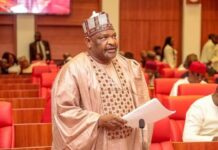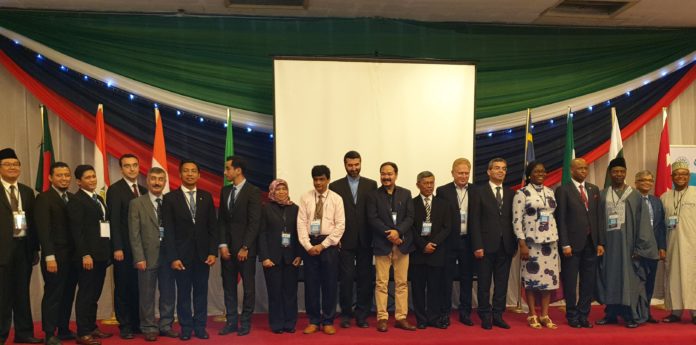By Ndidichukwu Odoh
…Says Political will apparent for achievement of Sustainable Development Goals
In Abuja Nigeria, the Development-8 Organization for Economic Development- countries met on the 19th -20th June, 2019.
The D-8, cooperation among Bangladesh, Egypt, Nigeria, Indonesia, Iran, Malaysia, Pakistan, and Turkey works to improve member states’ position in the global economy, diversify and create new opportunities in trade relations, enhance participation in decision-making at international level, and improve standards of living.
The inaugural consultation was organized to enable solidarity and cooperation for health and social protection as well as amplify linkages between investment in health and overall social and economic development of the D-8 countries
“The gathering outlined the urgent need to accelerate improvement in health outcomes, and broker collective economic development through improved well being, which will help the countries achieve health SDG and its Universal Health Coverage (UHC) target” said Dr Ado Muhammad, Special Adviser, Head Health and Social Protection Secretariat.
Inadequate and sustainable financing constrain achievement of health SDGs, and the UHC target, as well as constrain overall social and economic development within and across member countries of the D-8 were identified by participants as key challenge for member countries.
The consultation also highlighted building new narratives in innovative and sustainable financing for health, unprecedented cooperation towards trust and solidarity for collective action among its members.
A cursory look at the diversity of health burdens, access to services and health systems architecture helped countries to understand areas of alignment and potential collaboration across the 8 countries, as well as opportunities of shared learning.
“The D-8 group of countries has been successful in energy, transportation, industrial cooperation, and agriculture and food security since the last two decades but the health sector lagging behind, we organized the consultation to enable us develop a robust Health and Social Protection Programme” Ado said.
Lancet series of 2018 on progress and key determinants of Reproductive, Maternal. Newborn, Child and Adolescent Health in Muslim Majority Countries (MMC) suggests that despite notable reductions between 1990 and 2015, MMCs compared with a global estimate of all countries including MMCs had higher mortality rates, and MMCs relative to non-MMCs within Countdown countries also performed worse.
“Coverage of essential interventions across the continuum of care was on average lower among MMCs, especially for indicators of reproductive health, prenatal care, delivery, and labour, and childhood vaccines. Outcomes within MMCs for mortality and many reproductive, maternal, newborn, child, and adolescent health indicators varied considerably.” the report said.
The lancet findings also suggests, “ Structural and contextual factors, especially state governance, conflict, and women and girl’s empowerment indicators, were significantly worse in MMCs compared with non-MMCs within the high-burden Countdown countries, and were shown to be strongly associated with child and newborn mortality within low-income and middle-income MMCs.”
As its support to member countries, the consultation concluded that it would mobilize resources and assets to improve health. It will also build country programmes in health and social protection along the 7 pillars of the D-8 HSP Programmes, harnessing the achievements and strategies within existing global health initiatives and programmes.
























